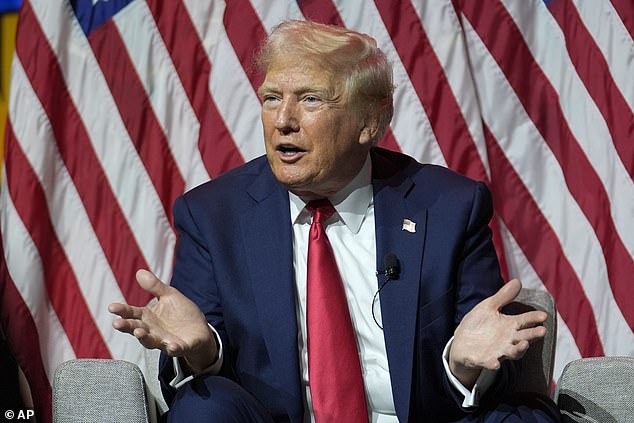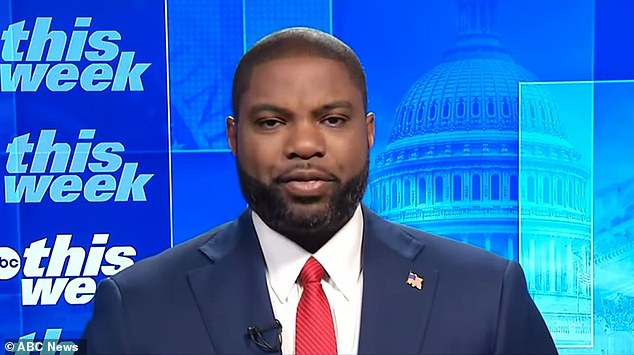Republican Congressman Byron Donalds, a close ally of Donald Trump, on Sunday dismissed the former president’s attacks on Vice President Kamala Harris’ racial identity as a “side issue” even as Trump has dug in.
The prominent Florida lawmaker appeared on ABC News’ “This Week” with host George Stephanopoulos in a tense interview in which he was asked about Trump’s recent comments at the National Association of Black Journalists.
Trump attacked Harris during last week’s event, claiming she had only recently begun identifying as black. He said she “just happened to become black.”
“Why is President Trump questioning the racial identity of the vice president?” Stephanopoulos asked Donalds.
“It’s a fake controversy. I don’t care, most people don’t care,” Donalds responded. “But if we’re going to be precise, when Kamala Harris entered the United States Senate, it was (the Associated Press) that said she was the first Indian-American senator.”
Rep. Byron Donalds (R-Fla.) confronts ABC News’ George Stephanopoulos over Donald Trump’s continued attacks on Kamala Harris’ racial identity
Donalds falsely claimed that it was only when he campaigned nationally that people began talking about his father’s heritage and his black identity.
When Harris was first elected to the Senate, several news articles highlighted the milestone in headlines that she was the first Indian-American elected to the Senate, but she also identified as Black.
“You just repeated the insult again. If it doesn’t matter, why do you keep questioning her identity?” Stephanopoulos insisted. “She’s biracial. She has a Jamaican father and an Indian mother. She’s always identified with both. Why do you question that?”
“Well, George, first of all, this is something that is being debated on social media right now. There are a lot of people trying to figure it out,” Donalds replied. “But again, it’s a secondary issue, not the main issue.”
Stephanopoulos interrupted him to point out that he was questioning her racial identity again less than two minutes into the conversation while the two were talking at the same time.
“Why do you insist on questioning his racial identity?” he replied. “I want you to answer my question.”
“George, now that you’re done yelling at me, let me respond. She talked about this on stage in Atlanta yesterday for what? Two minutes? She spent over 35 or 40 minutes criticizing her record and talking about how radical she was as a senator,” Donalds said.
Trump first questioned Harris’s identity at the NABJ event in Chicago last Wednesday, where he said thatHe was Indian through and through and suddenly she changed and became a black person. I think someone should look into that.

Trump said at an event in Chicago on July 31 of Harris: “She was Indian through and through and all of a sudden she turned around and became a black person.”
Some Republicans have questioned the former president’s continued line of attack and have urged the campaign to shift more toward talking about the issues.
But Trump doubled down on his efforts at his Wednesday night rally in Harrisburg, Pennsylvania, before bringing up the issue again Saturday night in Atlanta.
“So it’s okay to question someone’s racial identity even for a couple of minutes?” Stephanopoulos asked Donalds.
“George, I’ll say it again, he mentioned it. AP is the one that wrote the headline when she first came into the United States Senate. It wasn’t talking about her being black. It was talking about her being the first Indian-American senator,” Donalds said.
In 2016, when Harris was elected to the Senate, AP reported‘Harris will enter the chamber as the first Indian woman elected to a Senate seat and the second Black woman, following Carol Moseley Braun, who served a single term after being elected in 1992.’
Stephanopoulos noted that Donalds questioned Harris’s identity three times in his responses, stating, “You just can’t say it’s wrong.”
Donalds falsely insisted that it was the AP that denied her racial identity as black, claiming that “those are the facts.” She insisted that she would rather talk about the future of the country.

